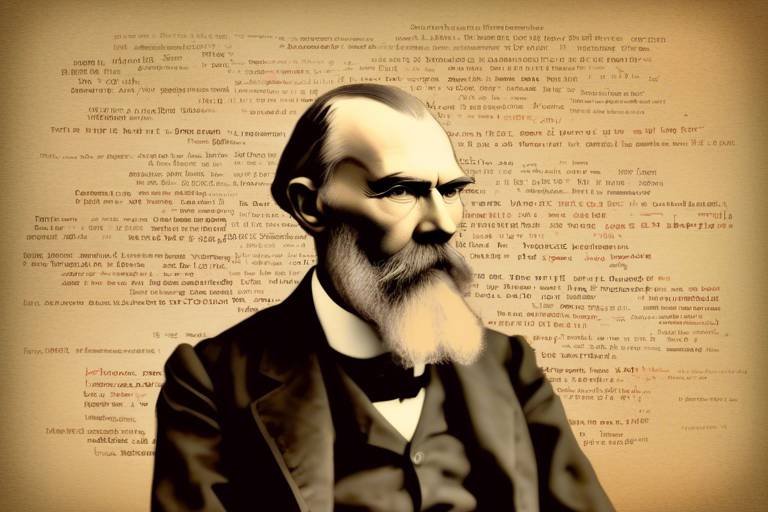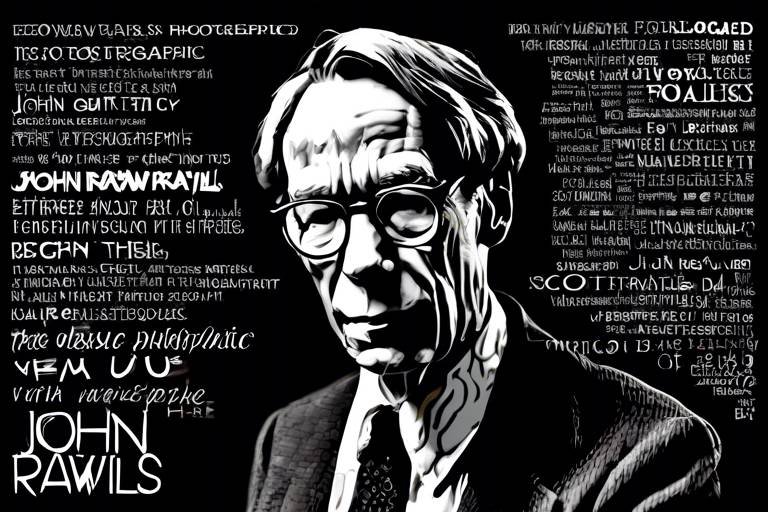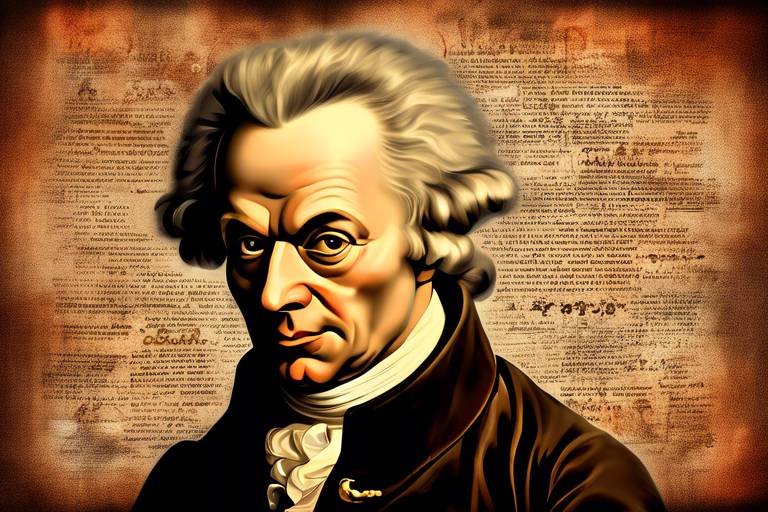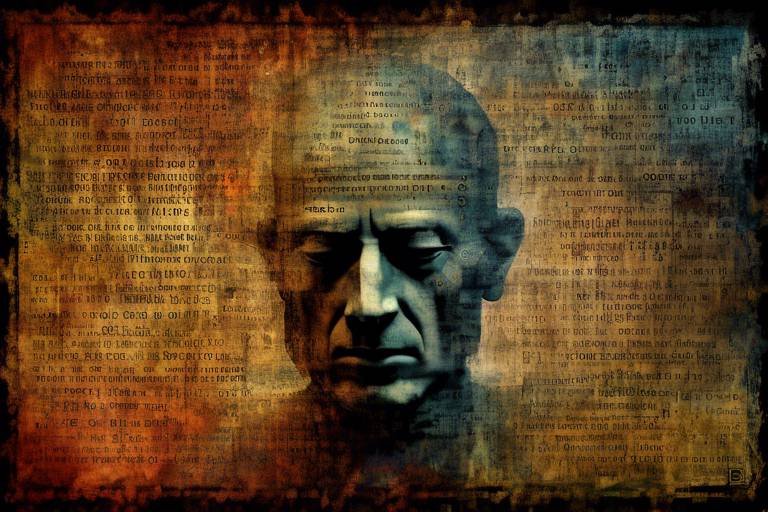Key Philosophies of the Enlightenment Era
The Enlightenment Era, often referred to as the Age of Reason, was a period of profound transformation that reshaped the intellectual landscape of Europe and beyond. This era was marked by a surge of ideas that emphasized reason, individualism, and a critical approach to traditional doctrines. Thinkers of this time sought to challenge the established norms of society, religion, and governance, pushing for a world where knowledge and rational thought led the way. The Enlightenment was not just a time for philosophical musings; it sparked revolutions in thought that laid the groundwork for modern science, politics, and human rights.
At the heart of the Enlightenment were a few key philosophies that defined the era. Rationalism and empiricism emerged as two foundational approaches to acquiring knowledge. Rationalists believed that reason and innate knowledge were the primary sources of understanding the world, while empiricists argued that knowledge comes from sensory experience. This debate between the two schools of thought created a fertile ground for scientific inquiry, leading to advancements that would forever alter humanity's understanding of the universe.
Moreover, the Enlightenment brought forth the concept of the social contract, a revolutionary idea that questioned the divine right of kings and proposed that governments are formed through the consent of the governed. Philosophers like Thomas Hobbes, John Locke, and Jean-Jacques Rousseau were pivotal in shaping this discourse. Hobbes, in his seminal work Leviathan, posited that humans are naturally selfish and that a strong central authority is essential to prevent chaos. Locke, in contrast, argued for natural rights and the legitimacy of government based on the protection of these rights. Rousseau introduced the concept of the general will, emphasizing collective decision-making as a means to achieve true freedom and equality.
These philosophies did not exist in a vacuum; they influenced and were influenced by the growing demand for human rights and personal liberty. Enlightenment thinkers championed the idea that every individual possesses inherent rights simply by being human. This radical notion paved the way for future movements advocating for civil liberties and social justice. The emphasis on reason and individual rights challenged the status quo and laid the foundation for modern democratic principles.
In summary, the Enlightenment Era was a time of intellectual awakening that encouraged people to question authority and seek knowledge through reason and experience. The key philosophies of rationalism, empiricism, social contract theory, and the advocacy for human rights were not just abstract ideas but powerful catalysts for change that shaped the modern world. As we delve deeper into the specific contributions of individual philosophers, we begin to see how their ideas continue to resonate in our society today.
- What was the Enlightenment Era? The Enlightenment Era, also known as the Age of Reason, was a period in the 17th and 18th centuries characterized by a surge in philosophical thought that emphasized reason, individualism, and skepticism of traditional authority.
- Who were the key philosophers of the Enlightenment? Key philosophers included Thomas Hobbes, John Locke, Jean-Jacques Rousseau, Voltaire, and many others who contributed significantly to ideas about government, human rights, and personal liberty.
- What is the social contract theory? Social contract theory is the idea that individuals consent to form governments and abide by their rules in exchange for protection of their rights and maintenance of social order.
- How did the Enlightenment influence modern democracy? Enlightenment thinkers laid the groundwork for democratic principles by advocating for individual rights, government accountability, and the importance of citizen participation in governance.

Rationalism and Empiricism
The Enlightenment era was a time of incredible intellectual advancement, characterized by the emergence of two pivotal philosophical approaches: rationalism and empiricism. These schools of thought not only shaped the landscape of modern philosophy but also laid the groundwork for scientific inquiry as we know it today. At its core, rationalism posits that reason and intellect are the primary sources of knowledge, suggesting that certain truths can be discovered through logical deduction alone. Think of it as a mental framework where ideas are built upon the foundation of innate concepts. On the other hand, empiricism argues that knowledge comes primarily from sensory experience. This approach emphasizes observation and experimentation, akin to a scientist meticulously documenting data to uncover the secrets of the universe.
To illustrate the differences between these two philosophies, let’s take a closer look at their key proponents. Rationalists like René Descartes famously declared, “I think, therefore I am,” highlighting the importance of doubt and reasoning in the pursuit of knowledge. In contrast, empiricists like John Locke believed that the mind is a blank slate at birth and that all knowledge arises from experience. This debate between rationalism and empiricism was not merely academic; it had profound implications for how Enlightenment thinkers approached the natural world and human existence.
The interplay between rationalism and empiricism can be likened to two sides of the same coin. While rationalists sought to understand the world through abstract reasoning and innate ideas, empiricists grounded their beliefs in tangible experiences and observable phenomena. This dynamic tension fueled a rich dialogue that ultimately advanced human understanding in various fields, including science, politics, and ethics. For instance, the scientific method we utilize today is a beautiful amalgamation of both philosophies, relying on rational hypotheses and empirical data to validate theories.
Furthermore, the Enlightenment's embrace of these two philosophies paved the way for the rise of critical thinking and skepticism. Thinkers began to challenge traditional authority and dogmas, advocating for a more evidence-based approach to understanding the world. This shift was revolutionary, as it encouraged individuals to question not only the natural world but also social and political structures. In essence, rationalism and empiricism served as catalysts for a broader cultural movement that valued inquiry and knowledge over blind faith.
Today, the legacy of rationalism and empiricism continues to influence contemporary thought. In education, for example, students are encouraged to think critically and engage with both theoretical concepts and practical applications. This dual approach mirrors the Enlightenment's foundational ideas, reminding us that true understanding often arises from a combination of reason and experience. As we navigate our complex world, the principles established during the Enlightenment remain vital, urging us to balance our intellect with the realities we observe around us.
In conclusion, the philosophies of rationalism and empiricism not only defined the Enlightenment but also shaped the trajectory of modern thought. Their enduring influence is a testament to the power of human inquiry and the relentless pursuit of knowledge. As we reflect on these ideas, it’s essential to recognize that the quest for understanding is an ongoing journey—one that requires both the sharpness of reason and the richness of experience.

Social Contract Theory
The concept of emerged during the Enlightenment era as a revolutionary way of thinking about the relationship between individuals and the state. This theory posits that individuals consent, either explicitly or implicitly, to surrender some of their freedoms and submit to the authority of a ruler or government in exchange for protection of their remaining rights. The implications of this idea were profound, reshaping political thought and the very fabric of society. Key philosophers such as Thomas Hobbes, John Locke, and Jean-Jacques Rousseau each offered unique perspectives on the social contract, fundamentally influencing the development of modern political systems and democratic principles.
At its core, social contract theory addresses the fundamental question: what justifies the authority of the state over the individual? It invites us to consider the balance between personal liberty and collective security. Each philosopher approached this question differently, reflecting their views on human nature and the ideal form of governance. For instance, Hobbes viewed humans as naturally self-interested and brutish, necessitating a strong central authority to maintain order. In contrast, Locke believed in the inherent goodness of people and the importance of protecting natural rights, advocating for a government that derives its power from the consent of the governed. Rousseau, meanwhile, introduced the idea of the general will, suggesting that true freedom is found in collective decision-making that reflects the common good.
In his seminal work, Leviathan, Hobbes argued that in a state of nature, life would be "solitary, poor, nasty, brutish, and short." He posited that to escape this chaos, individuals must enter into a social contract, yielding their rights to a sovereign authority—a "Leviathan"—that would impose order and protect them. This strong central authority was essential, in Hobbes' view, to prevent the anarchy that would otherwise prevail. His ideas laid the groundwork for a more authoritarian approach to governance, emphasizing the necessity of a powerful state to maintain peace and security.
John Locke, in his Two Treatises of Government, presented a contrasting view that significantly influenced the development of democratic thought. Locke argued that individuals possess natural rights to life, liberty, and property, which the government must protect. He asserted that the legitimacy of government arises from the consent of the governed, and if a government fails to uphold these rights, citizens have the right to revolt. This revolutionary idea laid the foundation for modern democracy, emphasizing the importance of individual rights and the role of citizens in governance.
Jean-Jacques Rousseau took the social contract theory a step further by introducing the concept of the general will. He argued that true freedom is achieved not through individualism but through participation in the collective decision-making process of society. Rousseau believed that when individuals come together to form a community, they create a collective will that reflects the common good. This idea has profound implications for modern democratic practices, highlighting the importance of civic engagement and the notion that the government should represent the will of the people as a whole.
The ideas propagated by these Enlightenment thinkers have had a lasting impact on the evolution of modern democratic principles. The notion that governments must be accountable to the people and that citizens have the right to participate in decision-making processes has become a cornerstone of contemporary political systems. The social contract theory emphasizes the importance of citizen participation in governance, advocating for a system where the voice of the individual contributes to the collective direction of society. This framework has inspired revolutions, constitutional reforms, and the establishment of democratic institutions worldwide.
In conclusion, the exploration of social contract theory reveals the profound ways in which Enlightenment philosophers shaped our understanding of governance and individual rights. Their ideas continue to resonate, reminding us of the delicate balance between authority and freedom, and the essential role of the individual in the collective enterprise of society.
- What is social contract theory?
Social contract theory is a philosophical concept that explores the legitimacy of state authority over individuals, suggesting that individuals consent to surrender some freedoms in exchange for protection of their remaining rights. - Who are the key philosophers associated with social contract theory?
The key philosophers include Thomas Hobbes, John Locke, and Jean-Jacques Rousseau, each offering distinct perspectives on human nature and governance. - How did Hobbes view the state of nature?
Hobbes believed that in the state of nature, life would be chaotic and brutal, necessitating a strong central authority to maintain order. - What are Locke's contributions to political philosophy?
Locke emphasized natural rights and the idea that government derives its legitimacy from the consent of the governed, advocating for the protection of life, liberty, and property. - What is Rousseau's concept of the general will?
Rousseau's general will refers to the collective decision-making process that reflects the common good, suggesting that true freedom is found in participation in this process.

Hobbes and the Leviathan
Thomas Hobbes, a pivotal figure in political philosophy, presented his ideas in the groundbreaking work titled Leviathan. Written during the tumultuous times of the English Civil War, Hobbes' views on human nature and governance were revolutionary. He famously argued that in the state of nature, humans are driven by self-interest and are in a constant state of competition, which leads to a chaotic existence. To escape this anarchy, Hobbes proposed that individuals collectively agree to form a social contract, surrendering some of their freedoms to a powerful sovereign in exchange for security and order. This concept was radical because it emphasized the necessity of a strong central authority to maintain peace and prevent societal collapse.
Hobbes believed that without such authority, life would be "solitary, poor, nasty, brutish, and short." His depiction of humanity as inherently selfish and violent was a stark contrast to the more optimistic views of later Enlightenment thinkers. According to Hobbes, the sovereign, or the Leviathan, must wield absolute power to effectively govern and ensure compliance with laws. This idea raised critical questions about the balance between authority and individual liberty, a debate that continues to resonate in modern political discourse.
Moreover, Hobbes' theories laid the groundwork for subsequent discussions about the nature of government and the rights of individuals. His insistence on a powerful ruler as a means to avoid chaos can be seen as both a warning and a solution, forcing society to grapple with the implications of surrendering personal freedoms for the sake of collective safety. To illustrate Hobbes' views, consider the following table that summarizes his key ideas:
| Concept | Description |
|---|---|
| State of Nature | A hypothetical condition where no government exists, leading to chaos and conflict. |
| Social Contract | An agreement among individuals to form a society and accept certain restrictions on their freedoms. |
| Leviathan | A metaphor for the absolute sovereign necessary to maintain peace and prevent anarchy. |
Hobbes' ideas were not universally accepted, and many philosophers critiqued his bleak view of human nature. However, his work undeniably shaped the trajectory of political thought, influencing later theorists like John Locke and Jean-Jacques Rousseau, who would challenge and refine his ideas. The conversation that Hobbes sparked about the role of government and individual rights remains vital in contemporary discussions about authority, freedom, and social responsibility.
- What is the main idea of Hobbes' Leviathan? Hobbes argues that a strong central authority is necessary to prevent chaos and maintain order in society.
- How does Hobbes view human nature? He believes humans are inherently selfish and prone to conflict without a governing power.
- What is the social contract according to Hobbes? It is an agreement where individuals give up some freedoms to a sovereign in exchange for protection and peace.

Leviathan,
This article explores the transformative ideas of the Enlightenment, highlighting key philosophers and their contributions to modern thought, science, and politics, shaping the world we live in today.
This section delves into the foundational concepts of rationalism and empiricism, examining how these approaches to knowledge influenced Enlightenment thinkers and the development of scientific inquiry.
An exploration of social contract theory, focusing on key philosophers like Hobbes, Locke, and Rousseau, and how their ideas about government and individual rights reshaped political thought.
Thomas Hobbes, an English philosopher, is best known for his groundbreaking work, Leviathan, published in 1651. In this seminal text, Hobbes presents a rather stark view of human nature, arguing that in a state of nature, individuals act primarily out of self-interest, leading to a chaotic and violent existence. He famously claimed that life in such a state would be "solitary, poor, nasty, brutish, and short." To escape this turmoil, Hobbes posited the necessity of a powerful, centralized authority—a 'Leviathan'—to impose order and ensure the safety of its citizens.
The concept of the Leviathan serves as a metaphor for the state, which Hobbes argues must be absolute and undivided. He believed that individuals should surrender certain freedoms to this sovereign power in exchange for protection and societal order. This social contract is fundamental to Hobbes' philosophy and underscores his belief in the need for a strong government to prevent the descent into anarchy. In essence, Hobbes viewed the Leviathan as a necessary evil, a force that, while potentially oppressive, is crucial for maintaining peace and security. This idea has sparked extensive debate among philosophers and political theorists regarding the balance between liberty and authority.
Here we analyze John Locke's contributions to political philosophy, particularly his theories on natural rights and government legitimacy, which laid the groundwork for modern democracy.
This section focuses on Jean-Jacques Rousseau's idea of the general will and its implications for collective decision-making and individual freedom in society.
We examine how Enlightenment thinkers influenced the formation of democratic principles and the importance of citizen participation in governance throughout history.
This part highlights the Enlightenment's emphasis on human rights and personal liberty, exploring how these ideals were articulated and their lasting effects on contemporary society.
A discussion on Voltaire's advocacy for civil liberties, particularly freedom of speech, and how his writings challenged the status quo and promoted tolerance.
This section addresses the role of women in the Enlightenment, analyzing how female philosophers contributed to the discourse on equality and rights, paving the way for future movements.
- What is the main idea of Hobbes' Leviathan? Hobbes argues for a strong, centralized authority to maintain peace and prevent chaos in society.
- How did Locke's views differ from Hobbes? Unlike Hobbes, Locke believed in natural rights and the idea that government should be based on the consent of the governed.
- What role did women play in the Enlightenment? Women contributed significantly to Enlightenment thought, advocating for equality and rights, which influenced future feminist movements.

emphasizing the necessity of a strong central authority.
Thomas Hobbes, a pivotal figure in Enlightenment thought, presented a compelling argument for the necessity of a strong central authority in his seminal work, Leviathan. In a world where chaos and disorder seemed to reign, Hobbes believed that humans, driven by their primal instincts and desires, would inevitably descend into a state of constant conflict without a governing power to maintain order. He famously described life in such a state as “solitary, poor, nasty, brutish, and short.” This stark depiction of human existence highlights his view that a robust central authority is not merely beneficial but essential for the survival and flourishing of society.
Hobbes argued that to escape this anarchic condition, individuals must collectively agree to surrender some of their freedoms to a sovereign power—be it a monarch or an assembly—in exchange for security and peace. This agreement, known as the social contract, serves as the foundation of Hobbes' political philosophy. He posited that the sovereign, endowed with absolute authority, would possess the power to enforce laws and ensure compliance, thereby preventing society from spiraling back into chaos.
Moreover, Hobbes emphasized that the authority of the sovereign must be unquestioned and absolute to effectively maintain order. Any challenge to this authority could lead to unrest and instability, undermining the very purpose of the social contract. In his view, the strong central authority is akin to a ship's captain, guiding a vessel through tumultuous waters; without a capable leader at the helm, the ship risks capsizing in the storm of human conflict.
While Hobbes' ideas may seem extreme by today's standards, they laid the groundwork for modern political theory. His insistence on the necessity of a strong central authority has influenced various forms of government, prompting discussions on the balance between individual liberties and societal order. This tension remains relevant in contemporary debates about governance, law, and civil rights.
In summary, Hobbes’ advocacy for a strong central authority is not just a historical concept but a critical lens through which we can examine the structure of modern governance. His insights continue to resonate, reminding us that the quest for peace and stability often requires a delicate balance between authority and freedom.
- What is the main idea behind Hobbes' social contract theory?
Hobbes' social contract theory posits that individuals consent to surrender some of their freedoms to a sovereign authority in exchange for security and order, preventing chaos and conflict. - Why did Hobbes believe a strong central authority was necessary?
Hobbes believed that without a strong central authority, human beings would revert to a state of nature characterized by violence and disorder, making life unmanageable and dangerous. - How does Hobbes' view compare to modern political thought?
While Hobbes advocated for absolute authority, modern political thought often emphasizes the importance of checks and balances, individual rights, and democratic governance, reflecting a shift towards valuing personal freedoms alongside societal order.

Locke's Two Treatises of Government
John Locke's Two Treatises of Government is a cornerstone of political philosophy that laid the groundwork for modern democracy. Written in the late 17th century, Locke's work emerged during a time of significant political upheaval in England, where ideas about governance were being fiercely debated. In the first treatise, Locke critiques the notion of absolute monarchy, particularly the divine right of kings, arguing that such power is unjust and irrational. He posits that all individuals possess inherent rights that cannot be taken away by any governing body. This revolutionary idea shifted the focus from the ruler's authority to the rights of the people, emphasizing that government should exist to serve the governed.
Locke's second treatise is where he truly shines, presenting his vision of a government built on the principles of natural rights and consent of the governed. He asserts that every person is entitled to certain inalienable rights, including life, liberty, and property. These rights are not granted by the government; rather, they are inherent to every individual. Locke famously stated, "Men being by nature all free, equal and independent, no one can be put out of this estate and subjected to the political power of another without his own consent." This assertion became a rallying cry for those advocating for democratic governance.
Locke's ideas on the social contract are particularly noteworthy. He believed that individuals come together to form a society and agree to establish a government to protect their rights. This agreement is not merely a formality; it is a binding contract. If a government fails to protect the rights of its citizens or becomes tyrannical, Locke argues that the people have the right to revolt and establish a new government. This notion of the right to rebellion was radical at the time and significantly influenced later revolutionary movements, including the American and French Revolutions.
Furthermore, Locke's thoughts on property were groundbreaking. He contended that property is a natural extension of one's labor and that individuals have the right to acquire and own property as long as they do not infringe on the rights of others. This idea of property rights would later become a fundamental principle in capitalist societies. Locke's emphasis on individualism and personal rights paved the way for later thinkers and movements that sought to expand these ideas into broader social contexts.
In summary, Locke's Two Treatises of Government not only challenged the prevailing notions of authority and governance in his time but also laid the intellectual foundation for the principles of democracy that we hold dear today. His arguments for natural rights, the social contract, and the right to revolt resonate through the ages, continuing to inspire discussions about liberty and justice in contemporary society.
- What are the main ideas presented in Locke's Two Treatises of Government?
Locke emphasizes natural rights, the social contract, and the right to revolt against unjust governments. - How did Locke's work influence modern democracy?
His ideas about individual rights and government by consent laid the groundwork for democratic principles. - What is the significance of the social contract in Locke's philosophy?
The social contract is the agreement by which individuals consent to form a government to protect their rights.

Rousseau's Concept of General Will
Jean-Jacques Rousseau, a towering figure of the Enlightenment, introduced the revolutionary idea of the general will in his seminal work, The Social Contract. This concept is not merely a philosophical abstraction; it serves as a cornerstone for understanding how societies can achieve true freedom and equality among their members. But what does Rousseau mean by the general will? In essence, it refers to the collective will of the people, which transcends individual desires and aims for the common good. It's about what the society as a whole wants, rather than what each individual might want for themselves.
Rousseau believed that individuals are often driven by self-interest, which can lead to conflict and division within a community. He argued that to achieve harmony, citizens must come together to form a collective identity, where their shared interests and values align. This is where the general will comes into play, acting as a guiding principle that directs the actions of the state towards the common welfare. In Rousseau's vision, true freedom is found not in the pursuit of personal gain, but in the adherence to the general will, which represents the collective interest of the populace.
To illustrate Rousseau's idea further, consider the following points:
- Collective Decision-Making: The general will is formed through democratic processes where citizens engage in discussions and debates, ultimately leading to decisions that reflect the common interest.
- Individual vs. Collective: While individual rights are important, Rousseau emphasized that they must be balanced with the needs of the community. The general will seeks to harmonize these interests.
- Legitimacy of Authority: For Rousseau, a government is legitimate only if it acts in accordance with the general will. This means that rulers must be accountable to the people and their collective desires.
Rousseau's concept of the general will has profound implications for modern democratic thought. It suggests that the legitimacy of a government stems from its ability to represent the collective aspirations of its citizens. This idea challenges the notion of absolute power, emphasizing that authority should be derived from the consent of the governed. In contemporary society, the general will can be seen as a precursor to participatory democracy, where citizen engagement is not just encouraged but essential for the health of the political system.
Moreover, Rousseau's vision of the general will underscores the importance of civic responsibility. Citizens are not merely passive recipients of governance; they are active participants in shaping the direction of their society. This notion encourages individuals to engage with their communities, advocate for their interests, and contribute to the collective good. In this way, Rousseau's philosophy resonates with the ongoing struggles for democratic rights and social justice, reminding us that the path to a just society requires the active involvement of its members.
As we reflect on Rousseau's ideas today, we can see their relevance in various movements advocating for social change and equality. The general will serves as a reminder that true freedom is achieved not through isolation but through community engagement and shared values. In a world where individualism often reigns supreme, Rousseau's call for a collective identity and purpose is more pertinent than ever.
- What is the general will according to Rousseau? The general will is the collective will of the people aimed at promoting the common good, transcending individual interests.
- How does the general will relate to democracy? The general will emphasizes the importance of collective decision-making, where the legitimacy of government is based on its representation of the people's desires.
- Why is Rousseau's concept of the general will important today? It highlights the need for civic engagement and responsibility, reminding us that a just society requires active participation from its citizens.

Impact on Modern Democracy
The Enlightenment era was a catalyst for modern democracy, sparking ideas that would forever change the political landscape. Imagine a world where the voice of the individual was drowned out by the noise of tyranny; the Enlightenment thinkers emerged as the beacons of hope, illuminating the path toward a system where governance is by the people and for the people. This shift in perspective was revolutionary, as it challenged the traditional notions of authority and power, advocating instead for individual rights and collective responsibility.
Central to this transformation were the ideas of social contract theory, which posited that governments derive their power from the consent of the governed. Think of it as a mutual agreement between the rulers and the ruled, where the former promise to protect the rights of the latter in exchange for their allegiance. This idea became a cornerstone of democratic thought, emphasizing the importance of citizen participation and accountability in governance. The Enlightenment philosophers, such as Hobbes, Locke, and Rousseau, each contributed unique perspectives that collectively laid the groundwork for modern democratic principles.
For instance, Locke's theories on natural rights—life, liberty, and property—became pivotal in shaping the United States Declaration of Independence. His assertion that individuals have the right to overthrow a government that fails to protect their rights resonated deeply during the American and French Revolutions. This notion of revolutionary legitimacy inspired countless movements around the globe, encouraging citizens to rise against oppressive regimes.
Moreover, the Enlightenment's emphasis on reason and rationality fostered a culture of political discourse that valued debate and discussion. This was a significant departure from the dogmatic adherence to tradition that characterized previous eras. The idea that laws and policies should be scrutinized and justified through logical reasoning rather than blind obedience became a fundamental aspect of democratic governance. As a result, modern democracies today often rely on constitutions and legal frameworks that reflect these Enlightenment ideals, ensuring that the rights of individuals are protected and that government actions are subject to public scrutiny.
Furthermore, the Enlightenment's impact extended beyond just political theory; it also influenced social movements advocating for equality and justice. The fight for civil rights, women's suffrage, and more recently, LGBTQ+ rights can trace their roots back to the Enlightenment's insistence on universal human rights. The idea that all individuals are entitled to certain inalienable rights has become a rallying cry for various social movements, illustrating the enduring legacy of Enlightenment thought in shaping a more equitable society.
In conclusion, the impact of the Enlightenment on modern democracy is profound and multifaceted. It not only reshaped political thought but also paved the way for ongoing struggles for freedom and equality. The echoes of Enlightenment ideals can still be heard in today's democratic practices, reminding us that the fight for liberty and justice is an ongoing journey. As we continue to navigate the complexities of modern governance, we must remain vigilant in upholding the principles that these great thinkers championed.
- What is the Enlightenment?
The Enlightenment was an intellectual and philosophical movement in Europe during the 17th and 18th centuries that emphasized reason, individualism, and skepticism of traditional authority. - How did Enlightenment thinkers influence modern democracy?
Enlightenment thinkers introduced concepts like social contract theory, natural rights, and the importance of reason in governance, which are foundational to modern democratic systems. - Who were the key philosophers of the Enlightenment?
Key philosophers include Thomas Hobbes, John Locke, Jean-Jacques Rousseau, and Voltaire, each contributing unique ideas that shaped political thought. - What role did women play in the Enlightenment?
Women philosophers and writers contributed to Enlightenment discourse, advocating for equality and rights, which later influenced feminist movements.

Human Rights and Liberty
The Enlightenment era was a pivotal time in history, where the seeds of human rights and liberty were sown, forever altering the landscape of societal values. Think about it: before this period, the idea that individuals had inherent rights simply by being human was almost unheard of. Philosophers began to challenge the status quo, advocating for the belief that every person deserves to be treated with dignity and respect. This radical shift in thought laid the groundwork for modern human rights movements that we see today.
At the heart of this transformation were thinkers like Voltaire, who championed the cause of civil liberties. His famous quote, "I disapprove of what you say, but I will defend to the death your right to say it," encapsulates the essence of freedom of speech. Voltaire understood that for a society to flourish, individuals must be free to express their thoughts and ideas without fear of oppression. His writings were not just words on a page; they were a clarion call for tolerance and understanding in a world often marred by conflict and censorship.
Moreover, the Enlightenment wasn't just about the rights of men. Women, too, began to carve out their space in this philosophical discourse. Female philosophers like Mary Wollstonecraft argued vehemently for women's rights, emphasizing that women should not only be seen as passive participants in society but as active contributors to the intellectual and political spheres. Her seminal work, A Vindication of the Rights of Woman, challenged the prevailing notions of female inferiority and called for educational reforms that would empower women. This was groundbreaking at the time and set the stage for future movements advocating for gender equality.
The impact of Enlightenment thought on human rights can be summarized in a few key principles:
- Inherent Rights: The belief that all individuals are entitled to certain rights simply by being human.
- Equality: The idea that every person, regardless of gender or social status, deserves equal treatment under the law.
- Freedom of Expression: The right to express one's thoughts and opinions without censorship or restraint.
- Social Justice: The pursuit of fairness and justice within society, ensuring that all voices are heard.
These principles were not just theoretical musings; they inspired revolutionary movements around the world. The American Revolution and the French Revolution were fueled by Enlightenment ideals, leading to the establishment of democratic governments that prioritized individual rights and liberties. The Declaration of Independence and the Declaration of the Rights of Man and of the Citizen are profound testaments to how Enlightenment thinkers influenced the political landscape, emphasizing that governments derive their power from the consent of the governed.
In contemporary society, the echoes of Enlightenment thought can still be heard. International human rights documents, like the Universal Declaration of Human Rights, reflect the foundational ideas that emerged during this era. The ongoing struggles for freedom, equality, and justice across the globe can be traced back to these Enlightenment philosophers who dared to envision a world where liberty was not just a privilege for the few, but a right for all.
As we navigate the complexities of modern life, it's essential to remember the legacy of the Enlightenment. It challenges us to continue advocating for human rights and liberty in our communities and beyond. The journey is far from over, but the groundwork laid by these visionary thinkers serves as a guiding light, inspiring us to fight for a future where every individual can live freely and with dignity.
Q1: What are human rights?
Human rights are the basic rights and freedoms that belong to every person in the world, from birth until death. They include the right to life and liberty, freedom of thought and expression, and equality before the law.
Q2: How did the Enlightenment influence modern democracy?
The Enlightenment introduced ideas about individual rights, liberty, and the social contract, which significantly influenced the development of democratic principles and institutions that prioritize citizen participation and government accountability.
Q3: Who were some key figures in the Enlightenment movement?
Key figures include Voltaire, John Locke, Thomas Hobbes, and Jean-Jacques Rousseau, each contributing unique perspectives on rights, governance, and human nature.
Q4: Why is freedom of speech important?
Freedom of speech is crucial because it allows individuals to express their ideas and opinions without fear of retaliation, fostering an open and democratic society where diverse perspectives can thrive.

Voltaire and Freedom of Speech
Voltaire, a towering figure of the Enlightenment, is often celebrated for his unyielding advocacy for freedom of speech. His sharp wit and incisive critiques of authority not only challenged the societal norms of his time but also laid the groundwork for modern concepts of civil liberties. Imagine living in a world where expressing your thoughts could land you in prison—this was the reality during Voltaire's era, a time when censorship was rampant, and dissent was met with severe consequences. Yet, Voltaire stood firm, believing that the ability to speak freely was essential for progress and enlightenment.
One of his most famous quotes, "I disapprove of what you say, but I will defend to the death your right to say it," encapsulates his philosophy. This statement isn't just a catchy phrase; it represents a profound commitment to the idea that every individual should have the right to express their opinions, even if those opinions are unpopular or controversial. Voltaire's writings often targeted the hypocrisy of the church and the state, urging people to question dogmas and think critically. Through his works, he advocated for a society where tolerance and reason would prevail over oppression and ignorance.
Voltaire's influence extended beyond mere words. He actively participated in the intellectual discourse of his time, engaging with other Enlightenment thinkers and contributing to various publications. His correspondence with figures like Frederick the Great and Catherine the Great showcased his belief in the power of dialogue and debate. He understood that the exchange of ideas was crucial for societal advancement, and he used his pen as a weapon against tyranny.
Moreover, Voltaire's commitment to freedom of speech was not just theoretical; it had real-world implications. He faced imprisonment and exile for his outspoken views, yet he never wavered in his beliefs. His resilience serves as a reminder that the fight for civil liberties often comes with personal sacrifice. Today, we continue to grapple with issues of censorship and free expression, making Voltaire's legacy more relevant than ever.
In contemporary society, the principles that Voltaire championed resonate strongly. From social media platforms to public protests, the right to voice one’s opinion is a cornerstone of democratic societies. However, this freedom is not without its challenges. The rise of misinformation and hate speech raises critical questions about the limits of free expression. Are there boundaries that should not be crossed? Voltaire would likely argue that the answer lies in the balance between freedom and responsibility.
In conclusion, Voltaire's advocacy for freedom of speech was revolutionary, challenging the status quo and inspiring generations to come. His legacy reminds us that the fight for human rights is ongoing, urging us to remain vigilant in protecting the freedoms that many take for granted today. As we reflect on his contributions, let us ask ourselves: How can we ensure that the spirit of Voltaire lives on in our commitment to free expression?
- What is Voltaire most known for? Voltaire is primarily known for his advocacy of freedom of speech and civil liberties, as well as his critiques of the church and state.
- How did Voltaire influence modern thought? His writings and ideas laid the foundation for modern concepts of tolerance, reason, and individual rights, impacting political philosophy and human rights movements.
- Why is freedom of speech important? Freedom of speech is crucial for democracy as it allows individuals to express their opinions, challenge authority, and engage in open dialogue, fostering societal progress.

Women and Enlightenment Thought
The Enlightenment era was a remarkable period that not only transformed the landscape of philosophy and politics but also opened the door for women to express their thoughts and ideas in a society that often marginalized them. While many of the prominent figures of the Enlightenment were men, several women made significant contributions that challenged the traditional norms of their time. These women were not just passive observers; they were active participants in the intellectual debates that shaped modern thought.
One of the most notable figures was Mary Wollstonecraft, whose groundbreaking work, A Vindication of the Rights of Woman, argued passionately for women's education and equality. Wollstonecraft believed that women should not be confined to the domestic sphere but should have the same opportunities as men to pursue knowledge and contribute to society. Her ideas laid the foundation for future feminist movements, emphasizing the importance of intellectual independence for women.
Another influential thinker was Émilie du Châtelet, a mathematician and physicist who translated and commented on Isaac Newton's work. Du Châtelet's contributions to science were groundbreaking, and her advocacy for women's education in the sciences demonstrated that women could excel in fields typically dominated by men. She challenged the notion that women were intellectually inferior and showed that with the right education and opportunities, they could achieve greatness.
Additionally, the salons of the Enlightenment played a crucial role in fostering discussions among intellectuals, and many women hosted these gatherings. For instance, Germaine de Staël was a prominent salonnière who invited thinkers, writers, and politicians to engage in spirited debates about philosophy, politics, and society. These salons became a space where women could influence the discourse, share their ideas, and advocate for social reforms.
Despite these contributions, women faced significant barriers in being recognized for their work. Many of their writings were published anonymously or under male pseudonyms to avoid the stigma associated with female authorship. This struggle for recognition highlights the broader societal challenges women faced in the Enlightenment period. Nevertheless, the seeds of change were sown, and the ideas promoted by these women would eventually inspire future generations to fight for equality and rights.
In conclusion, the Enlightenment was not solely a male-dominated movement. Women played a pivotal role in shaping Enlightenment thought, advocating for education, equality, and intellectual freedom. Their contributions were instrumental in laying the groundwork for modern feminist thought and continue to resonate today. As we reflect on this transformative era, it's essential to recognize and celebrate the voices of women who dared to challenge the status quo and assert their place in history.
- What was the role of women during the Enlightenment? Women played a significant role by advocating for education and equality, hosting salons, and contributing to philosophical discourse.
- Who was Mary Wollstonecraft? Mary Wollstonecraft was an early feminist thinker known for her work advocating for women's rights and education.
- How did women contribute to science in the Enlightenment? Women like Émilie du Châtelet made significant contributions to scientific thought, challenging gender norms and advocating for women's education in the sciences.
- What impact did salons have on women's intellectual contributions? Salons provided a platform for women to engage with prominent thinkers, share their ideas, and influence discussions on various topics.
Frequently Asked Questions
- What were the main ideas of the Enlightenment Era?
The Enlightenment Era was all about reason, individualism, and skepticism of traditional authority. Thinkers emphasized rational thought over dogma and superstition, advocating for the use of reason in understanding the world. This period laid the groundwork for modern science, political thought, and human rights.
- How did rationalism and empiricism shape Enlightenment thinking?
Rationalism, which argues that reason is the primary source of knowledge, and empiricism, which emphasizes sensory experience, were both pivotal during the Enlightenment. These philosophies encouraged thinkers to question established norms and seek evidence-based truths, ultimately leading to significant advancements in science and philosophy.
- Who were the key philosophers associated with social contract theory?
Three major figures stand out in social contract theory: Thomas Hobbes, John Locke, and Jean-Jacques Rousseau. Hobbes believed in a strong central authority to avoid chaos, Locke argued for natural rights and government by consent, while Rousseau emphasized the general will and collective decision-making. Their ideas collectively reshaped our understanding of government and individual rights.
- What is the significance of Hobbes' 'Leviathan'?
Hobbes' 'Leviathan' presents a view of human nature that is quite pessimistic, suggesting that without a strong government, life would be "solitary, poor, nasty, brutish, and short." He argued for a powerful sovereign to maintain order and prevent conflict, influencing modern political thought on authority and governance.
- How did Locke's ideas contribute to modern democracy?
John Locke's theories on natural rights—life, liberty, and property—are foundational to modern democratic thought. He argued that governments exist to protect these rights and that citizens have the right to overthrow a government that fails to do so. His ideas directly influenced the development of democratic principles and constitutional government.
- What does Rousseau mean by the 'general will'?
Rousseau's concept of the 'general will' refers to the collective will of the people, which he believed should guide society's decisions. This idea emphasizes the importance of collective decision-making and the balance between individual freedom and the common good, shaping modern democratic ideals.
- How did the Enlightenment influence human rights?
The Enlightenment was crucial in articulating the concepts of human rights and personal liberty. Philosophers like Voltaire and Locke promoted the idea that individuals have inherent rights that must be respected, which laid the groundwork for modern human rights movements and legal frameworks worldwide.
- What role did Voltaire play in advocating for freedom of speech?
Voltaire was a passionate advocate for civil liberties, especially freedom of speech. His writings challenged the status quo and criticized oppression, arguing that the ability to speak freely is essential for a just society. His famous quote, "I disapprove of what you say, but I will defend to the death your right to say it," encapsulates this belief.
- How did women contribute to Enlightenment thought?
Women played a significant role in the Enlightenment, with thinkers like Mary Wollstonecraft advocating for gender equality and women's rights. Their contributions challenged the male-dominated discourse of the time and laid the groundwork for future feminist movements, pushing for recognition of women's intellectual and social capabilities.



















